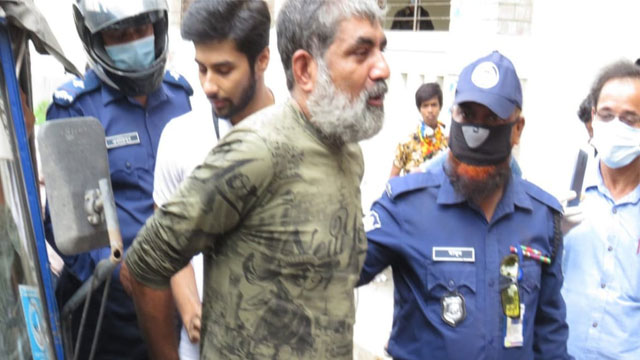Three separate virtual courts in Dhaka today refused to hold hearings on bail petitions of detained photojournalist Shafiqul Islam Kajol because he has not yet been shown arrested in the three cases filed under the Digital Security Act.
The cases were filed against Kajol with Sher-e-Bangla Nagar, Kamrangirchar and Hazaribagh Police Stations in March this year under the Digital Security Act.
Metropolitan Magistrate Md Shahinur refused to hear the bail petition as the investigation officer of the case filed with Kamrangirchar Police Station did not submit any petition to show him arrested in the case.
Metropolitan Magistrate Md Jasim refused to hold hearing on a bail petition submitted by Kajol's lawyer Barrister Jyotirmoy Barua through an email in the case filed with Sher-e-Bangla Nagar Police Station as a petition for showing him arrested is now pending.
The case was filed by Saifuzzaman Shikhor, a ruling party lawmaker from Magura-1, with Sher-e-Bangla Nagar Police Station on March 9.
Meanwhile, Metropolitan Magistrate Debdash Chandra Adhikary passed the same order after Kajol's lawyer submitted a bail petition virtually in the case filed with Hazaribagh Police Station, for which the petition to show him arrested is still pending.
As per the provisions of the Criminal Procedure Code (CrPC), no bail petition will be filed until or unless a person is shown arrested in a case.
Fifty-three days into his disappearance, Kajol was "discovered" by Border Guard Bangladesh in Benapole on May 3.
But he was arrested -- initially on charges of trespassing -- and granted bail in the case after he was produced before a Jashore court the same day.
But later the same evening Kajol was shown arrested under section 54 of the CrPC -- and sent to Jashore Central Jail as police informed the court that three more cases were pending with different police stations in the capital.
Section 54 of the CrPC stipulates that a person can be arrested without a warrant if there is credible information of his involvement with a "cognisable offence."





